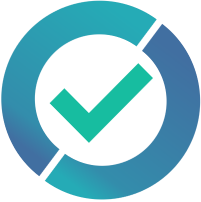This article provides clarity on what a compliance program is and what elements it consists of.

What is a Compliance Program?
The compliance program is one of the elements of the compliance management system. It is essential to the efficient and successful operation of any company. It represents a well-planned and organised effort to guide all compliance activities of a company. The compliance program can also be used as an essential source document for employee training. If appropriately maintained, the compliance program can help prevent or minimise regulatory violations and provide cost efficiencies.
Each compliance program is different, because of the numerous considerations that dictate it:
- Size and number of branches of the company
- Organisational structure
- Business strategy
- Location of the company and its branches
- Types of products
- Other factors, such as involvement in international or global trade.
A company’s compliance program must be as effective as possible and managed proactively to ensure ongoing compliance. It requires a continuous commitment from all management levels and should be part of a company’s daily business operations.
What are the Elements of the Compliance Program?
Generally speaking, a compliance program consists of the following components: policies and procedures, training, monitoring and consumer complaint response.
Policies and Procedures
Compliance policies and procedures generally should be described in a document. They are reviewed and updated as the company’s business and regulatory environment changes. A company’s compliance policies include goals and objectives, and appropriate procedures for meeting those goals and objectives.
The company’s personnel should have access to the policies and procedures needed to perform a business transaction. Employees should be able to access information, such as applicable regulations and sample forms with instructions.

Compliance policies and procedures represent the means to ensure consistent operating guidelines which support the company in complying with relevant laws and regulations.
Training
Comprehensive compliance training of a company’s management and staff is essential to maintaining an effective compliance program. A compliance training program should be frequently updated with current and accurate information on the company’s business operations, products and services, relevant laws and regulations, and internal policies and procedures.
Generally, the compliance officer is responsible for conducting the compliance training and establishing a regular training schedule for the board of directors, senior management, staff and third-party service providers. The training can be performed in-house or externally through training programs and seminars. Once personnel have passed training on a particular subject, the compliance officer should periodically assess employees’ knowledge and comprehension of the subject matter.
Monitoring
Any company should perform compliance monitoring to be able to identify and address procedural or training weaknesses in an attempt to prevent regulatory violations. The likelihood of success of a company’s compliance monitoring function is increased when the company include a compliance officer in the business propositions’ planning, development and implementation increase.
An effective monitoring system often includes regularly scheduled reviews of the following:
- document filing and retention procedures,
- disclosures and calculations for a variety of product offerings,
- posted notices, marketing literature, and advertising,
- third party service provider operations,
- internal compliance communication systems that provide updates and revisions of the relevant regulations.
These reviews are especially important after problems have been noted during past compliance audits or examinations, regulation changes, mergers, new products introduction, or when new branches are opened. Changes to regulations or changes in a company’s business operations, services and/or products trigger a review of established compliance activities and procedures.
In some business organisations, such as banking institutions, compliance monitoring also includes reviews at the transaction level during employees’ daily activities in every operating unit of the company. Such monitoring helps establish management and staff accountability and identifies potential issues on time.
Designated compliance officers should monitor employee performance to guarantee that everyone is following the established internal compliance policies and procedures. The employee turnover should be part of the regularly scheduled reviews.
Consumer Complaints
A company should be prepared to handle any incoming consumer complaints promptly. The company should have in place procedures for addressing complaints, and individuals or departments responsible for managing them.
Consumer complaints could be an indicator of a compliance weakness in a particular function or department. Thus, the designated compliance officers should be aware of the received complaints and ensure a timely resolution. Also, they should be able to determine the cause of the complaint and act upon it to improve the company’s business practices.
Relevant links you may want to check:
